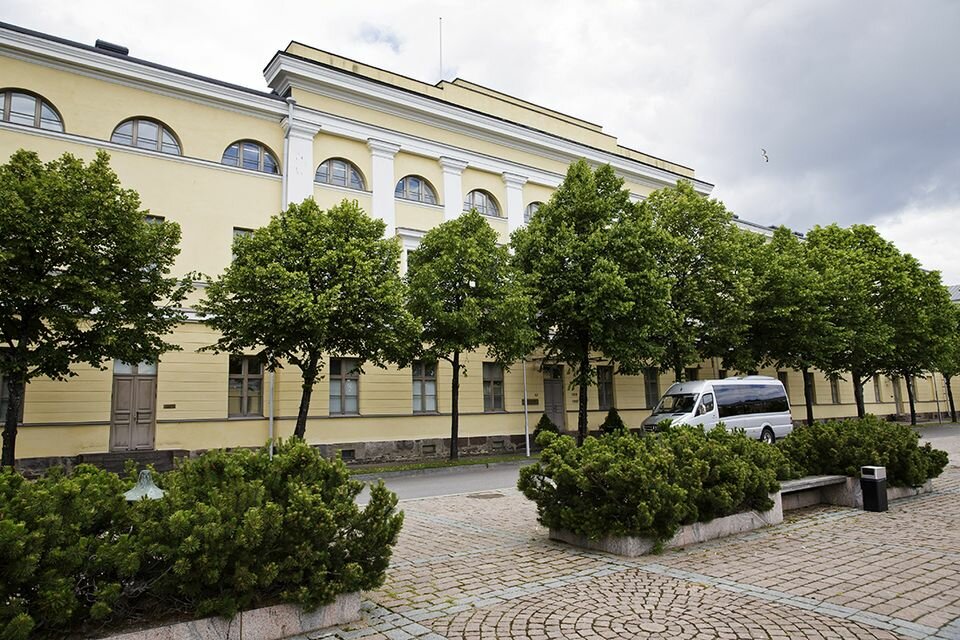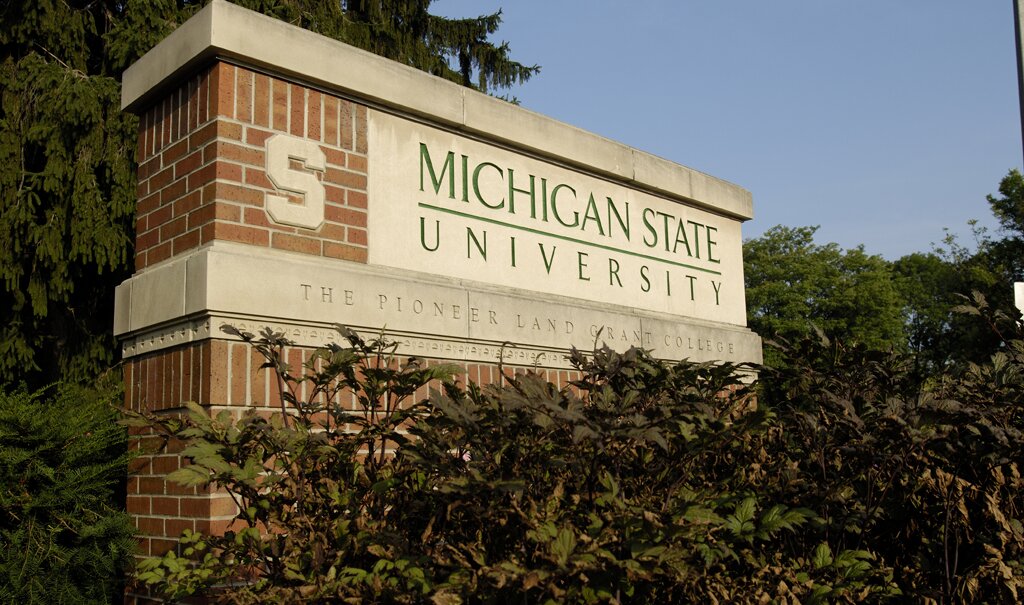How an immigration raid changed a town
Â
 Tiny Postville, Iowa, struggles to regain its footing one year after the largest immigration sweep in US history.
Tiny Postville, Iowa, struggles to regain its footing one year after the largest immigration sweep in US history.
Postville, Iowa -
This town tucked in the black-loam corner of northeastern Iowa has long been a bustling, polyglot place. If it was a morning pastry you wanted, you could get it at a Somali-run coffee shop. Other red-brick storefronts along Lawler Street, the main thoroughfare, specialized in Mexican or Guatemalan food.
Jewish kids attended school at their own yeshiva, while their parents bought matzo ball mix and gefilte fish at a kosher restaurant and grocery store. A sign at the high school track and football field, set hard against rows of corn, cautioned youths about rollerblading or biking on the grounds – in English, Spanish, and Ukrainian.
But then federal immigration authorities raided the dominant business in town, a meat-processing plant, which employed almost half the area’s 2,300 residents, many of them undocumented workers. Today, one year later, Postville is hanging on by a bib-overall thread.
The slaughterhouse is bankrupt. Scores of homes have been vacated by the workers who were either deported or thrown out of jobs. Retailers are shuttering businesses. Most telling of all, the city council has declared the town a disaster area.
In many ways, Postville represents a classic tale of what can happen when a large employer in a small town runs into trouble. It’s a story of how a government raid – however justified – has changed a town. Now, as Postville tries to reinvent itself, it may hold lessons for other towns across the country.
“What happened did not happen overnight, and a recovery will not happen overnight,” says Maryn Olson, the head of the Postville Response Coalition, a group of business, church, and civic leaders working to save the town.
A NO-TRAFFIC-LIGHT TOWN set in undulating dairy country, Postville was humming along in preraid times due mostly to the presence of Agriprocessors Inc. New York investor Aaron Rubashkin had purchased a shuttered Postville meatpacking plant in 1987 with plans to specialize in producing kosher chicken and beef.
By 2008 Agriprocessors, which was being run in Iowa by Mr. Rubashkin’s son Sholom, was processing 60,000 chickens and buying 500 cattle a day from area livestock producers. It was the largest kosher meatpacker in the country, employing about 1,000 people.
Agriprocessors hired Jewish rabbis to kill each animal to kosher standards. Further processing was conducted by local hires, and when that pool was tapped out, the company turned to immigrants from Ukraine, Russia, Somalia, Mexico, Israel, and most notably Guatemala.
An area first settled by German and other European immigrants (Czech composer Anton Dvorak and his family spent summers in nearby Spillville) suddenly found itself teeming with people from new lands. Adjustments needed to be made, such as including more Spanish in schools and getting acquainted with Jewish customs. Lawler Street, with all its ethnic storefronts, looked like a mini United Nations in a cornfield.
Then Immigration and Customs Enforcement (ICE) agents, some 500 strong, descended on Postville on May 12, 2008, to arrest Agriprocessors workers they suspected of not having proper documents. As helicopters thumped overhead, they rounded up 389 people. It was the largest immigration raid in US history.
The plant foundered under the weight of the raid, and, by November, Agriprocessors declared bankruptcy. It then closed, though a small portion of it has since reopened and is being run by a US Bankruptcy Court trustee.
Most of the illegal workers either accepted immediate deportation or pleaded guilty to immigration or document fraud charges, and, once they had served time, were sent home. Several dozen immigrants, mostly women, were released to care for children. They remain in Postville, but must wear electronic ankle bracelets so the government can monitor them.
Local churches and aid groups have taken up the plight of the undocumented workers who remain, offering food, clothing, housing, and help with lawyers. Father Paul Ouderkirk of St. Bridget’s Roman Catholic Church estimates his congregation is dispensing $80,000 a month alone – money that has come in from across the country.
Operators of the plant are faring less well. Sholom Rubashkin is awaiting federal trial on charges of bank fraud and violating immigration and packing-plant laws and regulations. Several of his managers face immigration or document-alteration charges. The state has also filed misdemeanor charges against Mr. Rubashkin, including for multiple alleged infractions of child-labor laws. He has pleaded innocent to the charges. [Editor’s note: The original version failed to note that Mr. Rubashkin was released on bail in January.]
The ripple effects from the raid remain palpable in Postville – especially coming amid a virulent national recession. The town will likely default on a federal loan it took out to expand its wastewater treatment plant. Nearly 50 percent of the brick storefronts on the south edge of Lawler Street, as well as on adjoining Greene Street, lie vacant.
“The people, they don’t have any money right now,” says Elver Herrera, a Guatemalan who left his packing-plant job several years ago to run a bakery in downtown Postville. He has watched many stores close and has now posted a “For Sale” sign in his window. “I’m not gonna make it,” says Mr. Herrera, who is married to an Iowan.
Few here seem to be giving up on Postville, though. Far from it. Bill Anderson exudes the kind of stoicism and resiliency that permeates farm country. He has sold gasoline and tuned up cars on South Lawler for 46 years – well before Agriprocessors first took over the operation and even before another meat plant on the site closed in the 1980s. “We got by,” he says with clipped finality. “We’ll get by.”
 A KEY QUESTION IS whether Agriprocessors will play any part of the town’s future. Local officials believe it is operating at about one-third of capacity (the bankruptcy court trustee, Joseph Sarachek, who’s overseeing the operation, couldn’t be reached for comment), which isn’t enough to do much good for Postville. Town officials hear about deals to sell it to Israeli investors, but they are moving on either way. They’re inviting outside experts to plot ways to revive the town.
A KEY QUESTION IS whether Agriprocessors will play any part of the town’s future. Local officials believe it is operating at about one-third of capacity (the bankruptcy court trustee, Joseph Sarachek, who’s overseeing the operation, couldn’t be reached for comment), which isn’t enough to do much good for Postville. Town officials hear about deals to sell it to Israeli investors, but they are moving on either way. They’re inviting outside experts to plot ways to revive the town.
In April, representatives of Jewish Community Action (JCA), of St. Paul, Minn., and the Chicago-based Jewish Council on Urban Affairs visited Postville to offer help. Both groups have worked here for several years. “Jewish organizations … have a special obligation to take action to improve conditions in this plant for all workers, and to strive for comprehensive immigration reform because we were once immigrants in this country,” says JCA head Vic Rosenthal, noting also how important the plant has been in supplying kosher food.
Others are suggesting ways to protect the workers and community if the plant fully resumes operations. Russ Adams, of the Minneapolis-based Alliance for Metropolitan Stability, touts the virtues of “community benefit agreements.” These forge pacts between citizens and corporations on issues such as fair labor and environmental practices.
Many people agree the plant would need to be run differently. “It’s all about not getting taken a second time,” says the Rev. Stephen Brackett of St. Paul’s Lutheran Church. “There are a lot of people who say that plant ruined this town.”
The town may, in fact, want to look beyond the meat business altogether. Jeff Schott, a community affairs expert at the University of Iowa, is encouraging local officials to devise a “wish list” of where they want to be in five years – the types of jobs, parks, healthcare, and other services – and then work to attract businesses and retailers. John Molinaro of the Aspen Institute believes Postville should avoid being “seduced” by industrial recruitment and encourage local entrepreneurialism – firms that build on any natural assets the town possesses.
Whatever direction the town takes, it will likely have to do it on its own. The state chipped in $680,000 and sent two AmeriCorps volunteers to Postville after the raid. But it’s still struggling to clean up from last summer’s floods in eastern Iowa.That means much of the task of reinventing the town will fall on people like Maryn Olson, whose paper-cluttered desk sits in what used to be the Somali-run coffee shop. The head of the Response Coalition feels the town is off to a good start. But it’s just a start.
Still, she, like other locals, seems undaunted. Kim Deering, who runs the Wishing Well flower and gift shop, may have put it best. Postville, she says simply, was – and is – more than Agriprocessors.•
Source: CS Monitor
Comments
comments
 Calendar
Calendar






































